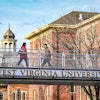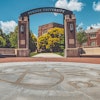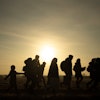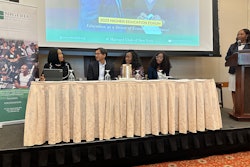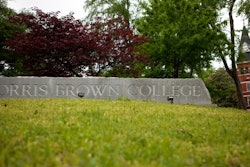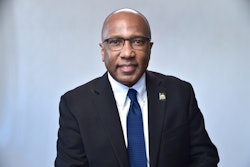BALTIMORE – Michael Riecken got out of Egypt at precisely the right time.
Riecken, a 23-year-old senior at Johns Hopkins University majoring in Near Eastern studies, was part of a team working on an archaeological dig in Luxor when pro-democracy protests broke out in Cairo, Egypt’s capital.
But Riecken and a fellow Johns Hopkins undergraduate didn’t need to be evacuated. They already had planned to leave last Friday, and their travel plans weren’t disrupted. Riecken spent Thursday night at a hotel in Giza, on the outskirts of Cairo, and he didn’t see any of the demonstrations firsthand, relying instead on news accounts.
“There was never a point that I didn’t feel safe in Egypt,” Riecken told The Associated Press by phone Monday as he drove from his parents’ home in Plainfield, N.J., to the Johns Hopkins campus in Baltimore.
Still, Riecken said he agreed with the decisions by Johns Hopkins and other universities in the mid-Atlantic region to evacuate their students amid the weeklong protests, which could topple Egypt’s government. The remaining members of the archaeological team including a professor and several graduate students were scheduled to depart on charter flights Tuesday.
Egyptian police initially clashed with protesters but then virtually vanished from the streets on Friday, prompting a wave of looting, armed robbery and arson. The official death toll from the crisis stood at 97, with thousands injured, but reports from witnesses across the country indicated the actual toll was far higher.
The Egyptian military said Monday it would not use force against protesters, and the streets were calmer amid calls from opposition leaders for even larger protests.
The AP contacted a half-dozen major universities in the region Monday, and all said they were arranging for students, faculty and staff to get out of Egypt.
The universities cited safety as the reason for pulling students from study-abroad programs. Many were attending classes at the American University in Cairo, where Tahrir Square in the city center has been the heart of the protests.
“I think it’s an absolutely essential step,” Riecken said of the evacuations. “There is always a potential for unexpected acts of violence or theft. … The Muslim Brotherhood and other extremist groups do target Western tourists and expatriates. I believe there is a greater risk of extremism against Westerners with the lack of oversight.”
Riecken was quick to add that he saw no animosity toward Americans among the Egyptian people. He also was pleased to see that protesters and the army had rebuffed attempts by looters to raid precious antiquities at the Egyptian National Museum. Some young Egyptians created a human chain at the museum’s front gate to ward off looters before soldiers arrived early Saturday morning.
“It just goes to show how important their culture is to them and how much value the Egyptians place on antiquity,” he said.
Riecken was one of dozens of students from the Mid-Atlantic region to leave Egypt in recent days.
Twenty-two students and two faculty members from the University of Delaware flew home on commercial carriers Sunday, said Lesa Griffiths, associate provost for international programs. A 23rd undergraduate on independent study in Cairo is booked on a charter flight out Tuesday.
“We’re in contact with her and she’s safe,” Griffiths said.
The other students returned in two groups, one from Cairo and the other from Sharm el-Sheikh. The Cairo group 10 students and their instructor had a tight window to make their 10 a.m. flight, just three hours after a nighttime curfew ended, Griffiths said.
“It was wonderful to see the text messages saying, ‘We’re on an airplane.’ That was reassuring,” she said.
Georgetown University announced Monday afternoon that 15 students studying in Cairo landed safely in Doha, Qatar, where they will be housed temporarily at a satellite campus.
Nearby George Washington University said it was evacuating its dozen or so students studying in Egypt. It said on its website Monday that five students have landed safely in Athens, Greece, and several others are en route from Egypt to places in Europe.
In addition to the archaeological team, Johns Hopkins evacuated more than 20 employees from its Bloomberg School of Public Health. Two undergraduates who were studying at the American University in Cairo were also planning to board charter flights Tuesday.
George Mason University in Fairfax, Va., was evacuating a single student from AUC.
Of the seven University of Maryland students studying in Egypt, six were either back in the U.S. Monday or were on their way back. One student, who enrolled independently in a program at AUC, was still there.
“We are making every effort to return this last student home safely,” university spokesman Millree Williams said in a statement. He added that the university would not rule out sending students back to Egypt “once the political situation has settled down and personal safety is not in question.”
Associated Press writer David Dishneau in Hagerstown, Md. contributed to this report.

